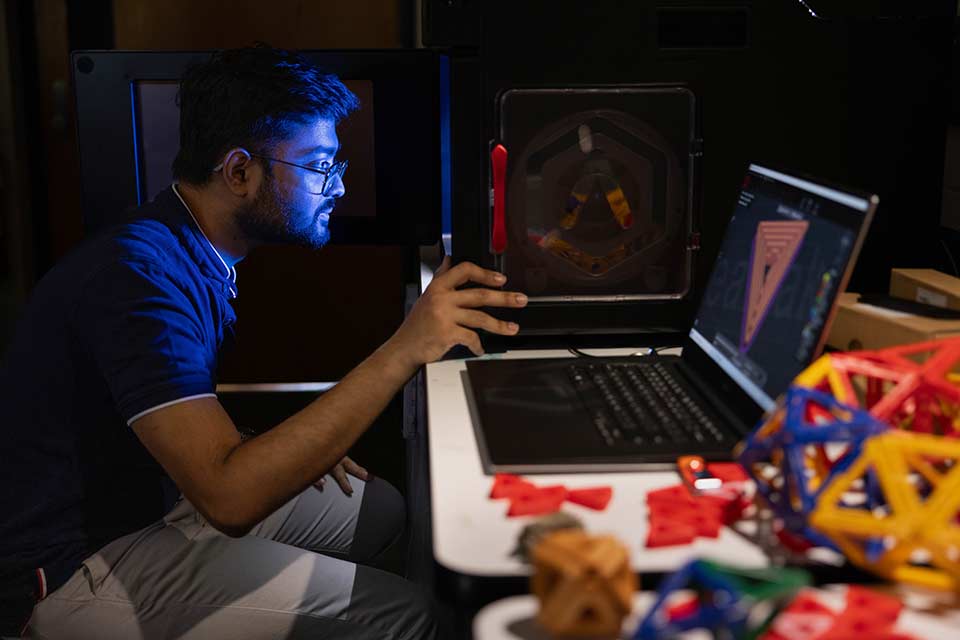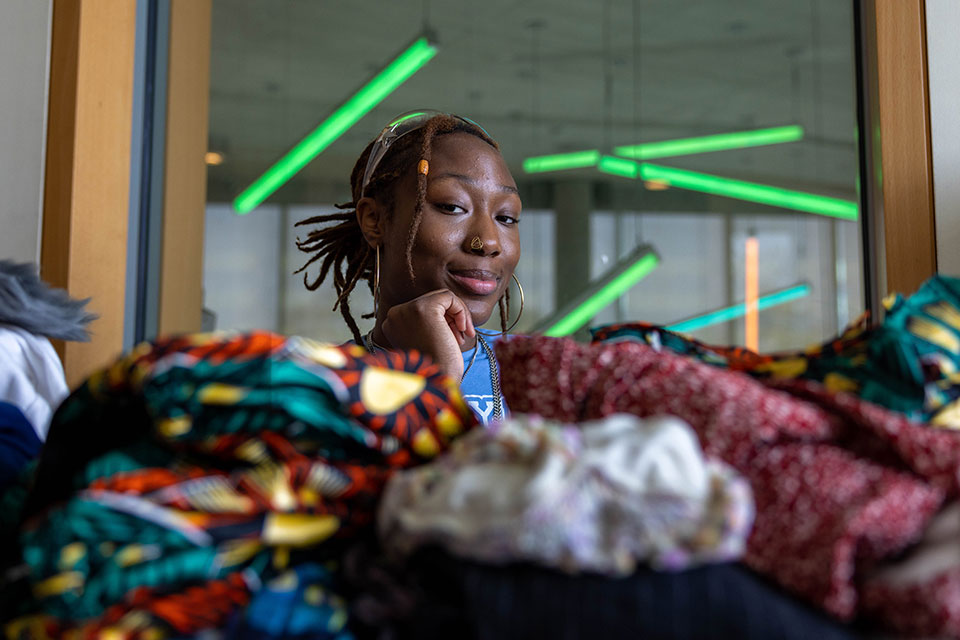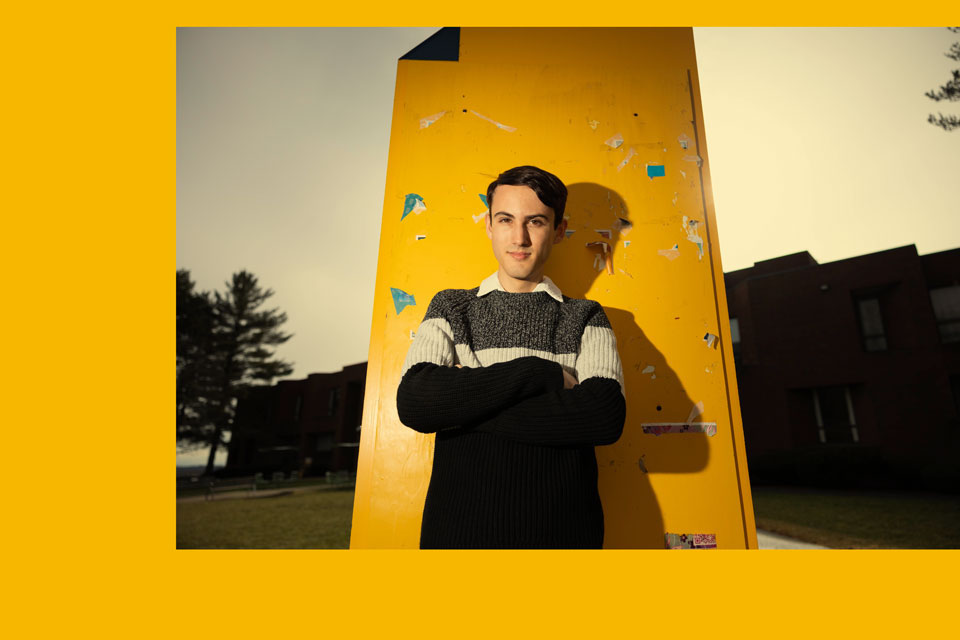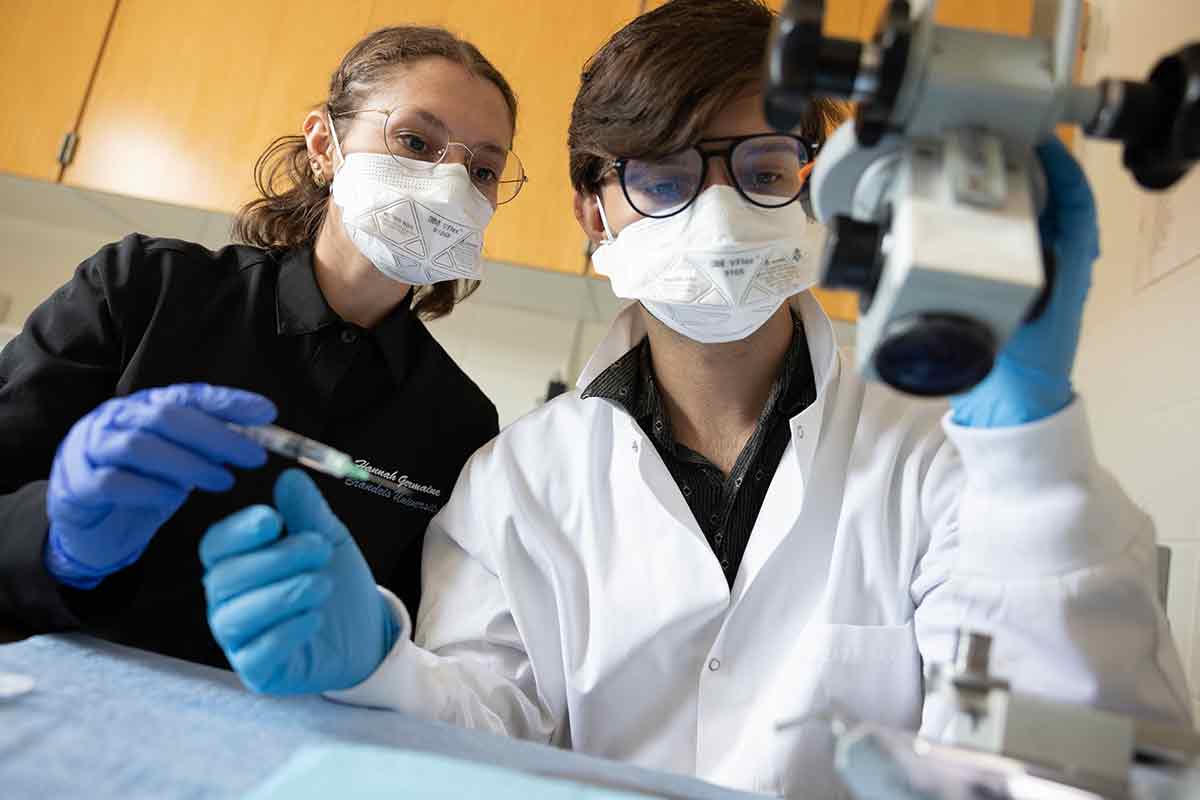Scientific origami: Folding DNA into desired structures

Photo Credit: Dan Holmes
By Kennedy Ryan
September 8, 2023
For students from the Graduate School of the Arts and Sciences, summer is the opportunity to dedicate time to research, mentor undergraduate students, and get closer to their findings.
Brandeis Stories spoke with Rupam Saha, a fourth-year physics PhD candidate, to learn more about his summer in the lab.
How would you summarize your research focus in under 300 words?
Our group designs self-limited structures, objects that, during their self-assembly process, are designed to restrict their growth to a particular size rather than continually expanding. We design them on length scales, many times larger than the building blocks themselves.
My research project aims to construct large capsids, protective protein shells that house the genetic material (DNA or RNA) of viruses, with high yield using a minimal number of building blocks. It’s inspired by the ability of large viruses to form complete, functional capsids using very few components.
What inspires you?
I'm curious about exploring the unknown and keen on my personal and professional growth through real-world problem-solving. Specifically, my research delves into the realm of engineering functional biomaterials via DNA origami, a concept that captivates me with its meticulous atom-by-atom design.
“As a student, I've had the privilege of collaborating with a diverse group of fellow science enthusiasts.”
Rupam Saha
DNA origami, much like the traditional art of origami where paper is folded to create various shapes, involves the precise folding of DNA molecules. It's a technique that enables the design of nanoscale objects with molecular-level accuracy. Careful consideration is given to the sequence of bases in both the scaffold and staple strands to ensure they can bind together in specific patterns, allowing the DNA to autonomously assemble into the desired structure.
I'm driven by a desire to effect change, aiming to impart societal significance through innovative contributions.
How will this research experience impact your future career plans?
The research exposure during my time in graduate school has enriched my proficiency in addressing challenges, nurturing my analytical thinking through real-world applications.
During my time at Brandeis, I've personally witnessed the vibrant scientific environment that has equipped me with essential skills for engaging with both peers and esteemed experts in both academic and industrial settings.
As a student, I've had the privilege of collaborating with a diverse group of fellow science enthusiasts. We've collectively worked on various research projects, attended journal clubs, and participated in research update meetings, which have consistently fueled stimulating group discussions and sparked fresh research ideas.
Brandeis also consistently offers a wide array of networking events, such as conferences, career fairs, alumni connections, and industry collaborations. Engaging in these activities has enabled me to cultivate a robust professional network that will undoubtedly benefit my future career prospects.
What advice would you share with a student looking to pursue research?
I recommend that students cultivate passion as a driving force. Equally crucial is establishing a solid grounding in the pertinent field, thereby valuing conventional coursework. Furthermore, showing respect towards educators and mentors and actively absorbing their knowledge is paramount for rapid personal growth.


